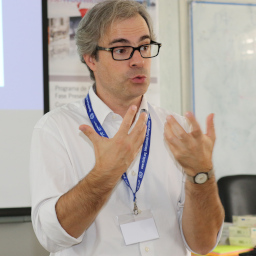Cabo Verde
Données & Indicateurs
39,2
SDG 1.3.1 Effective coverage
2019
100,0
Affiliated to health insurance
2019
3,1
Public expenditure on healthcare
2017
6,4
Public expenditure on social protection
2017
561 901
Total population
2021
242 310
Labour force
2020
35
Poverty rate
2015
3 602
GDP per capita
2019
Sources: ILO, World Social Protection Database, based on SSI; ISSA/SSA, Social Security Programs Throughout the World; ILOSTAT, ECLAC, IMF, WHO, WB, UNDP, UNICEF, completed with national data sources. 2020 or latest available year.
Publications
Situation et prioritiés
Situation de la protection sociale
Cabo Verde has made significant efforts to improve its social protection system: social insurance covers all branches and registered a coverage rate of 51.5% in 2020. Although this value is high for the region, the Government is focused on eradicating extreme poverty by 2026 through a national strategy (2022-2026) and expanding coverage by linking it to the formalization of the economy. Health coverage is near-universal and available for all residents, through contributory and non-contributory means.
In social assistance (SA), the Social Pension is the most consolidated benefit, having been paid regularly for more than 10 years through the State Budget to 69.8% (2020) of people over the age of 60. In 2023, the Social Pension was enlarged to more than 3,000 people, reaching to 26,000 beneficiaries. To improve the families’ income revenue and reduce the poverty level, in 2020 it was created the Social Inclusion Income (RSI). 1,086 extremely poor householders, in particular those who have minors in charge, received his cash transfer for a time frame of two years. The Single Social Registry (CSU) - the management tool the Government has decided to create- is fully in place. This new tool has helped support the implementation of a new cash transfer for the poorest and most vulnerable families. The Government considers the CSU as the single gateway to all social benefits.
In the contributory scheme, there has been developed institutional capacity to allow the responsible national institution to develop the necessary measures to extend social protection coverage, notably to conduct actuarial studies. Regarding the workers who are not registered in the Social Security system or stopped contributing, a study was carried out to identify the factors that make it difficult to increase Social Security enrolment and contributions. As a result, measures will be launched to tackle the difficulties identified.
COVID-19 and other crises
Cabo Verde was able to respond quickly to the effects of COVID-19, in large part thanks to the previous work they had done, in partnership with UN Agencies, namely to create the Single Social Registry and improve the delivery method of all social assistance programmes. Since 2016, they have moved to delocalize implementation, with central authorities working in tandem with all the 22 local municipalities to improve identification and administration.
A solidarity grant (RSO) was established for informal economy workers and workers earning under 200 euros a month, providing a one-time payment of 90 euros to 30,000 beneficiaries. Existing cash transfer programmes were extended to approximately 3,000 households, providing a monthly income of 50 euro, and food assistance was provided for 22,500 households. During the pandemic crisis, the Government has launched RSI-Emergencial. This benefit was an additional social protection measure to respond to the loss of income due to the COVID-19 suffered by around 14 thousand of the poorest families. Additionally, unemployment benefits were extended and eligibility, requirements were reduced. Overall, COVID reinforced the importance of social protection in responding to crises for government and social partners.
Priorités du gouvernement
- Ensuring that the social protection system is even more prepared for future shocks - economic, natural, or health - has emerged as a government priority in light of COVID-19.
- Improving the harmonization of the social assistance programmes, through reinforcing the Single Social Registry with improved management information systems.
- Formalize workers in the informal economy by expanding coverage of social insurance.
- Commit, with the support of all development partners, to eradicate extreme poverty by 2026.
Projets et programmes de l'OIT
Resultats
- In 2016, the ILO provided technical advice for the development of the Action Plan for the implementation of the Single Social Registry. (as a result of the work done during 2013-2015) The SSR was enacted in 2018 with ILO support, including the training of 100 officials on its use.
- The ILO supported the reinforcement of the National Centre for Social Pensions, helping improve coverage of the social pension, supporting the design and implementation of (i) the new cash transfer programme for poor families, and (ii) a new benefit for immigrants in the diaspora, and supporting the restructuration of the external evacuation services for people not covered by social insurance.
- The ILO, through an employment creation project, supported the preparation of the national strategy for the transition to formalization, provided contributions to the National employment plan, and contributed to the post-crisis needs assessment conducted post-COVID-19.
Espaces de travail
Multimedia
Experts de l'OIT

Dramane Batchabi

Nuno Castro
